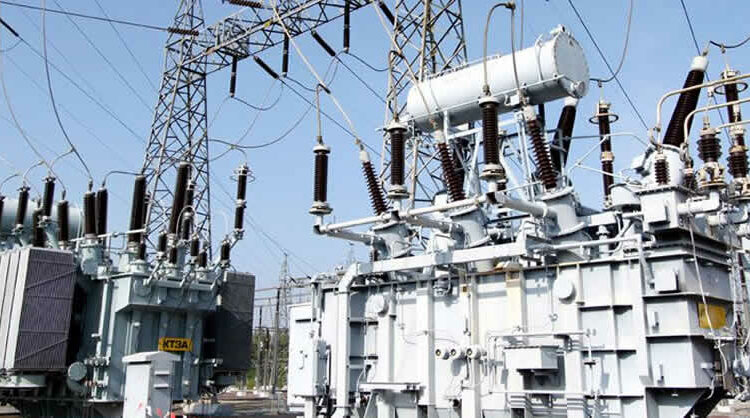Organised Labour on Thursday raised concerns over the huge funds running to almost N3 trillion injected by the federal government into the privatised electricity companies, which they said have not yielded a commensurate output in a decade of their sale.
The federal government through the Bureau of Public Enterprises (BPE) unbundled the Power Holding Company (PHCN) 11 units and sold them into the private sector in 2013, holding back 40 per cent. Despite the huge injections, a larger percentage of the country is still without clean and stable electricity.
Secretary general of the National Union of Electricity Employees (NUEE), Comrade Joe Ajaero expressed concern during the public hearing on a bill to amend the Electric Power Sector Reform Act, 2005 to provide the legal and institutional framework for the implementation and coordination of the Rural Electrification projects, the establishment of the National Power Training Institute and Regulatory provisions to strengthen the sector for efficient services delivery and for related matters, held at the instance of House Committee on Power chaired by Hon. Aliyu Magaji.
The public hearing, as explained by Magaji, was to address the concerns raised by the Nigeria Governors’ Forum (NGF) on the directive of the Speaker of the House of Representatives, Hon. Femi Gbajabiamila, before the consideration of the Committee’s report on the public hearing, held on the 14th of December 2021.
Comrade Ajaero who argued that privatisation has further compounded the economic woes maintained that the privatisation policy was designed to fail from the onset.
He maintained that “there has not been meaningful improvement or contribution by the current investors Nine years after privatization and 17 years after the Electric Power Sector Reform Act, 2005 was signed into law.”
While stressing the need to review the entire privatisation exercise, the NUEE scribe said: “Our position on privatisation is clear, but we are worried whether the amendments are critically based on the market private public where we belong now.
“Having tried privatisation for 10 years, and we are doing just the amendment of sections of the act and even the review provision in the act which gives provision for the review of the sector after five years and we have written consistently and it has not happened.
“This Act, are we really obeying it? If there is a provision for review after five years, and Nigerians are groaning, consistently Nigerians are complaining and we say privatisation was based on the fact that government doesn’t have any business in it and government is pumping in money to an individual’s business.
“As we speak now, almost N3 trillion has been pumped into the power sector which wasn’t there when it was owned by the government. So what’s the logic to saying government has no business in business and the government now has to pump and fund the business of another man? And we need to sit down and see what is working for us.
“That is why we came here to say the laws we made by ourselves, we can pause and look at it and move on. Since nobody has to talk about the reversion of privatisation, let’s see how it can ft us.
“As we are speaking today, the issue of tariffs is on, if the government is pumping in trillions and Nigerians are being compelled to pay, you can see what is happening, the country is suffering.
“If you put two trillion (naira) in the economy of Nigeria today it will thrive, but it is being pumped into businesses owned by individuals. Let’s look at it. What is the cost-benefit analysis of this if we have to take our money, and go and check the records, for about 10 years before privatization, the government didn’t put ten percent of that money into the sector but it’s putting it now.
“For another 10 years no increase in generation, no conscious master plan, there is no plan in the country that by next year power plant will come into the system. Not for the next two years or three years for power generation to be constant, at 4,000 Megawatt, and demand will continue to increase because more houses will be built, connect on, and on.
“So if this is reduced to the public hearing and no action is taken further on how to make the system work, Nigeria is still at the bottom of countries suffering power poverty all over the world.
“The normal concept is one million people to one thousand Megawatt, and we have a country of 200 million people with 4 to 5 thousand Megawatt, nobody is talking about it.
“During the Babangida era, there was a feasibility study on Mambila which had the capability of giving what we are having in this country today and from that period till now nothing has happened. The same thing with Zungeru.
“The union doesn’t want to bask in the euphoria of the Act/law which does not provide one Megawatt to the system. The union doesn’t want to bask in the euphoria of having 19 companies, 19 MDs, and EDs on 4,000 Megawatts.
“The company that was owned by one ED before will now multiply. The multiplication of 19 successor companies did not add one Megawatt. So what’s the honest sense of sweeping in 200 companies knowing the generation is constant,” Comrade Ajaero noted.
In the bid to address the myriad challenges facing the industry, Comrade Ajaero underscored the need for a review of the shareholding of the industry.
According to him, “The option of Government controlling 60 per cent shares of the facilities as against the present 40 per cent (inclusive of the negotiated 10 per cent equity shareholding for staff in line with the Laws setting up the National Council on privatization (NCP) is imminent as the Private Sector Operators have clearly shown lack of capacity to construct a simple Power Plant since the last 9 years.
“Besides, the Federal Government has continued to fund the Sector. Available statistics show that about N400 billion was realized from the privatization of the Power sector with the Federal Government investing over one trillion thereafter,” he stressed.
Meanwhile, the Minister of State for Power, Goddy Jedy-Agba who spoke during a media chat with Parliamentary Correspondents on the presentation of the NUEE Secretary-General on the arbitrary increase of electricity tariff, denied knowledge of the indiscriminate electricity tariff imposed by the Nigerian Electricity Regulatory Commission (NERC) on consumers.
He said: “Where is the Chairman NERC? He’s the one that does anything on tariffs. I can’t speak on tariffs. He’s the chairman of NERC that can speak on tariff.”
But when informed that he’s the Minister supervising the activities of NERC and other regulatory agencies, Jedy-Agba said: “No, no, no, don’t put me in a corner. There’s a chairman responsible for NERC. You want me to tell you what does not apply and you hold me on to that responsibility?
“The Chairman NERC is here, let me bring him here. So when you ask me, he will answer it. It’s the chairman of NERC that is responsible for a tariff increase. It’s okay.”
However, when one of the Minister’s aides sent to call the NERC Chairman approached him, he declined to approach the Minister and left the venue hurriedly.





